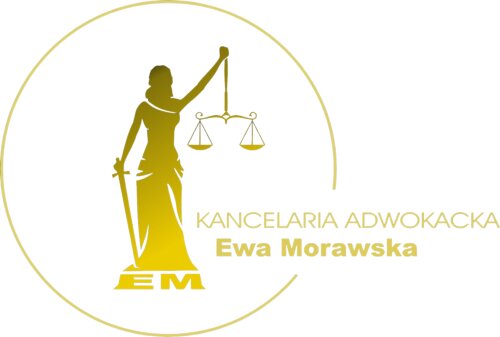Best Restructuring & Insolvency Lawyers in Warsaw
Share your needs with us, get contacted by law firms.
Free. Takes 2 min.
List of the best lawyers in Warsaw, Poland
About Restructuring & Insolvency Law in Warsaw, Poland
Restructuring and insolvency law in Warsaw, Poland, is designed to provide legal mechanisms for businesses and individuals facing financial distress. These frameworks help manage debt, protect creditor interests, and offer opportunities for reorganizing a failing business or winding it down in an orderly manner. The Polish legal system offers several procedures tailored to different needs, including restructuring proceedings that focus on rehabilitation and insolvency proceedings that facilitate liquidation. With Warsaw being the commercial heart of Poland, many cases are handled by experienced professionals in the city, ensuring that clients receive guidance that is both practical and compliant with Polish regulations.
Why You May Need a Lawyer
Navigating restructuring and insolvency processes can be complex and stressful, often involving interactions with multiple stakeholders such as creditors, tax authorities, and courts. Common situations where legal assistance is essential include:
- Your company faces insolvency and you need to evaluate all potential legal options.
- You require negotiation with creditors or restructuring of existing debts.
- It is necessary to file for bankruptcy and comply with statutory requirements.
- You are a creditor seeking to protect your interests during another party’s insolvency.
- There are allegations of director liability in relation to insolvent trading.
A qualified restructuring and insolvency lawyer can guide you through the legal maze, develop a tailored strategy, and help avoid costly mistakes.
Local Laws Overview
The primary legal frameworks governing restructuring and insolvency in Warsaw are found in the Act of 15 May 2015 - Restructuring Law and the Act of 28 February 2003 - Bankruptcy Law. Key features include:
- Restructuring proceedings aim to help debtors avoid bankruptcy through arrangements with creditors under judicial supervision. There are multiple restructuring procedures available, such as arrangement proceedings, approval proceedings, and remedial proceedings.
- Bankruptcy proceedings focus on liquidating the assets of an insolvent debtor and distributing proceeds to creditors based on statutory priorities.
- Director and stakeholder obligations include timely filing for bankruptcy when insolvency criteria are met and avoiding actions that could prejudice creditors.
- Creditors’ rights are protected through participation in proceedings and the ability to contest decisions or actions that may affect their recovery.
- Special rules may apply to individuals, entrepreneurs, and larger companies, as well as cross-border insolvency cases involving parties from other EU countries.
Frequently Asked Questions
What is insolvency under Polish law?
Insolvency occurs when a debtor is unable to meet its due financial obligations or when its liabilities exceed the value of its assets. This applies to both individuals and companies.
What are the main types of restructuring proceedings available?
There are several types, including arrangement approval proceedings, accelerated arrangement proceedings, arrangement proceedings, and remedial proceedings. Each offers different levels of court involvement and complexity.
How long do restructuring or insolvency proceedings take?
The timeline varies depending on the case type and complexity. Accelerated proceedings may take a few months, while full bankruptcy cases can last over a year.
Can directors be held personally liable for company debts?
Yes. If directors fail to file for bankruptcy in a timely manner once insolvency is known, or if they act to the detriment of creditors, they may face personal liability.
Are there options to avoid bankruptcy completely?
Yes. Restructuring proceedings offer alternatives to bankruptcy, such as negotiating payment terms or debt reduction with creditors under court supervision.
What happens to employees during insolvency?
Employees have certain protections, with some claims receiving priority in distribution. The State Guaranteed Employee Benefits Fund may cover outstanding salaries in some cases.
How are creditors involved in the process?
Creditors are invited to submit their claims, participate in meetings, vote on arrangements, and may challenge decisions impacting their interests.
Can foreign creditors participate in Polish insolvency proceedings?
Yes. Polish law allows for the inclusion of foreign creditors, especially in cases involving cross-border elements, in line with EU regulations.
Will entering restructuring impact the business’s ability to operate?
During most restructuring proceedings, the debtor retains control, though some actions require court or supervisor approval. Daily business operations often continue with certain restrictions.
Where are restructuring and insolvency cases heard in Warsaw?
These cases are generally handled by the Commercial Division of the district or regional court with jurisdiction over the debtor’s registered office, most commonly the courts in Warsaw for local businesses.
Additional Resources
If you need further information or support, consider the following resources:
- Warsaw District Court - Commercial Division (Sąd Rejonowy w Warszawie, Wydział Gospodarczy)
- Polish Association of Restructuring Practitioners (Polskie Stowarzyszenie Syndyków i Doradców Restrukturyzacyjnych)
- Ministry of Justice (Ministerstwo Sprawiedliwości) - information on bankruptcy and restructuring regulations
- National Debt Register (Krajowy Rejestr Długów) for creditor concerns
- Local law firms and advisory offices specializing in insolvency and restructuring
Next Steps
If you are facing financial distress or wish to protect your rights in a restructuring or insolvency matter:
- Assess your financial situation and gather documentation related to debts, assets, and contracts.
- Contact a legal professional who specializes in restructuring and insolvency law in Warsaw. Look for professionals with experience in similar cases.
- Prepare a list of questions and concerns for your initial consultation to get the most out of legal advice.
- Stay informed about deadlines, especially regarding filing obligations and creditor claim periods.
- Keep communication open with stakeholders, including employees, creditors, and business partners, as transparency often helps in negotiations.
Restructuring and insolvency law is complex. Timely and professional legal advice can make a significant difference in protecting your interests and reaching a resolution that aligns with your goals.
Lawzana helps you find the best lawyers and law firms in Warsaw through a curated and pre-screened list of qualified legal professionals. Our platform offers rankings and detailed profiles of attorneys and law firms, allowing you to compare based on practice areas, including Restructuring & Insolvency, experience, and client feedback.
Each profile includes a description of the firm's areas of practice, client reviews, team members and partners, year of establishment, spoken languages, office locations, contact information, social media presence, and any published articles or resources. Most firms on our platform speak English and are experienced in both local and international legal matters.
Get a quote from top-rated law firms in Warsaw, Poland — quickly, securely, and without unnecessary hassle.
Disclaimer:
The information provided on this page is for general informational purposes only and does not constitute legal advice. While we strive to ensure the accuracy and relevance of the content, legal information may change over time, and interpretations of the law can vary. You should always consult with a qualified legal professional for advice specific to your situation.
We disclaim all liability for actions taken or not taken based on the content of this page. If you believe any information is incorrect or outdated, please contact us, and we will review and update it where appropriate.

















